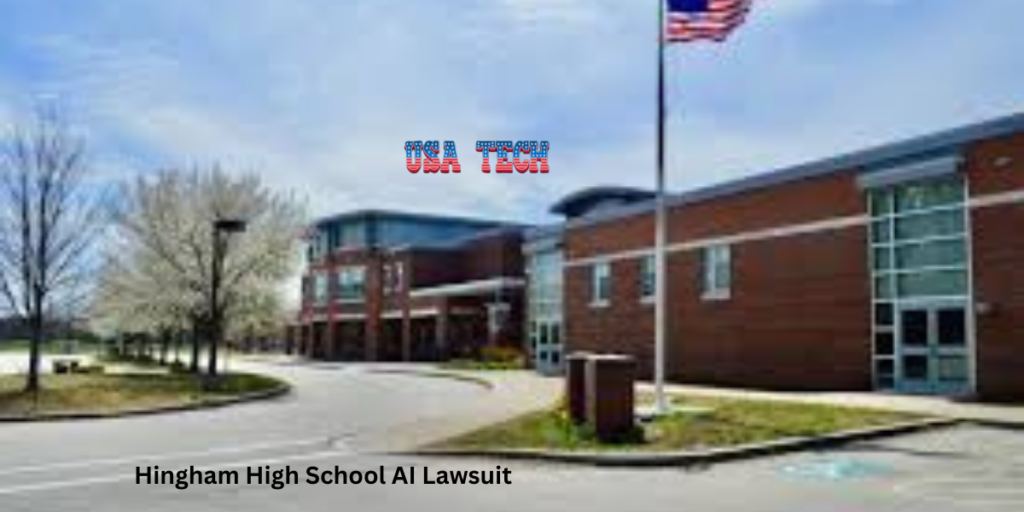Understanding the Hingham High School AI Lawsuit: Key Details and Implications 1
The digital revolution has introduced transformative technologies into every sphere of life, including education. Artificial Intelligence (AI), one of the most significant technological advancements of the 21st century, has found its way into classrooms, offering unparalleled learning opportunities. However, the intersection of AI and education has also raised legal and ethical questions, as evidenced by the unfolding Hingham High School AI lawsuit. This case has sparked a widespread debate, shedding light on the balance between innovation and responsibility.
Background of the Hingham High School AI Lawsuit
Hingham High School AI Lawsuit, located in Massachusetts, is renowned for academic excellence and community engagement. Recently, the school has been embroiled in a lawsuit that has brought attention to how AI technologies are integrated into educational settings. The case revolves around the alleged misuse of AI-driven tools in assessing student performance and the potential breaches of privacy that occurred during the process.
The plaintiff, a group of concerned parents and students, claims that the school’s use of AI for monitoring and evaluating student work overstepped legal and ethical boundaries. Central to their argument is the assertion that the AI systems employed collected, analyzed, and stored student data without sufficient transparency or consent.
Legal and Ethical Questions Raised
The Hingham High School AI lawsuit has highlighted several key issues that resonate beyond the school itself:
- Privacy Concerns:
One of the primary allegations in the lawsuit is the potential invasion of student privacy. AI systems often rely on large datasets to function effectively, which may include sensitive personal information. If such data is mishandled or inadequately protected, it can lead to significant privacy violations. - Transparency in AI Usage:
The lawsuit emphasizes the need for schools to be transparent about the use of AI tools. Parents and students have a right to understand how their data is being utilized, especially when it directly impacts their education. - Bias in AI Algorithms:
Another concern is the possibility of bias in the algorithms used by the AI systems. If the technology disproportionately impacts certain groups of students or fails to consider diverse learning styles, it can lead to unfair outcomes. - Accountability and Consent:
Who is accountable when AI systems fail or overreach? The Hingham High School AI lawsuit underscores the importance of obtaining informed consent from stakeholders before implementing such technologies.
Implications for Schools Nationwide
While the lawsuit is specific to Hingham High School AI Lawsuit, its implications extend to educational institutions across the country. The case serves as a wake-up call for schools to evaluate how they integrate AI into their operations. It also underscores the need for comprehensive policies that address the ethical and legal challenges associated with AI in education.
Best Practices for Implementing AI in Schools
In light of the Hingham High School AI lawsuit, schools must adopt best practices to ensure responsible AI usage.
- Develop Clear Policies:
Educational institutions should establish detailed guidelines on AI use, specifying how data will be collected, stored, and analyzed. - Engage Stakeholders:
Schools must involve parents, students, and educators in discussions about AI adoption. Transparency builds trust and ensures that all voices are heard. - Regular Audits:
Conducting regular audits of AI systems can help identify and address issues related to bias, accuracy, and data security. - Emphasize Ethics Training:
Educators and administrators should receive training on the ethical implications of AI to ensure its responsible use.
The Role of Our Company in Promoting Responsible AI Use
Our company is dedicated to fostering ethical and effective AI implementation in educational settings. We understand the potential of AI to revolutionize learning and streamline administrative tasks, but we also recognize the importance of prioritizing privacy and fairness.
Through innovative solutions and collaborative efforts, we aim to help schools navigate the complexities of integrating AI. From developing transparent data policies to conducting ethical audits, our expertise ensures that institutions can harness the benefits of AI while mitigating risks.

Moving Forward
The Hingham High School AI lawsuit is a pivotal moment in the ongoing conversation about AI in education. While the technology offers immense potential, its implementation must be guided by a commitment to transparency, fairness, and accountability.
As schools nationwide take note of this case, it is an opportunity to reevaluate and refine their approaches to technology integration. By prioritizing the needs and rights of students, educational institutions can build a future where AI enhances learning without compromising trust.
The Hingham High School AI lawsuit is more than a legal battle; it is a catalyst for change, urging schools, companies, and policymakers to work together to create a balanced and ethical approach to AI in education.
More Update UsaTech